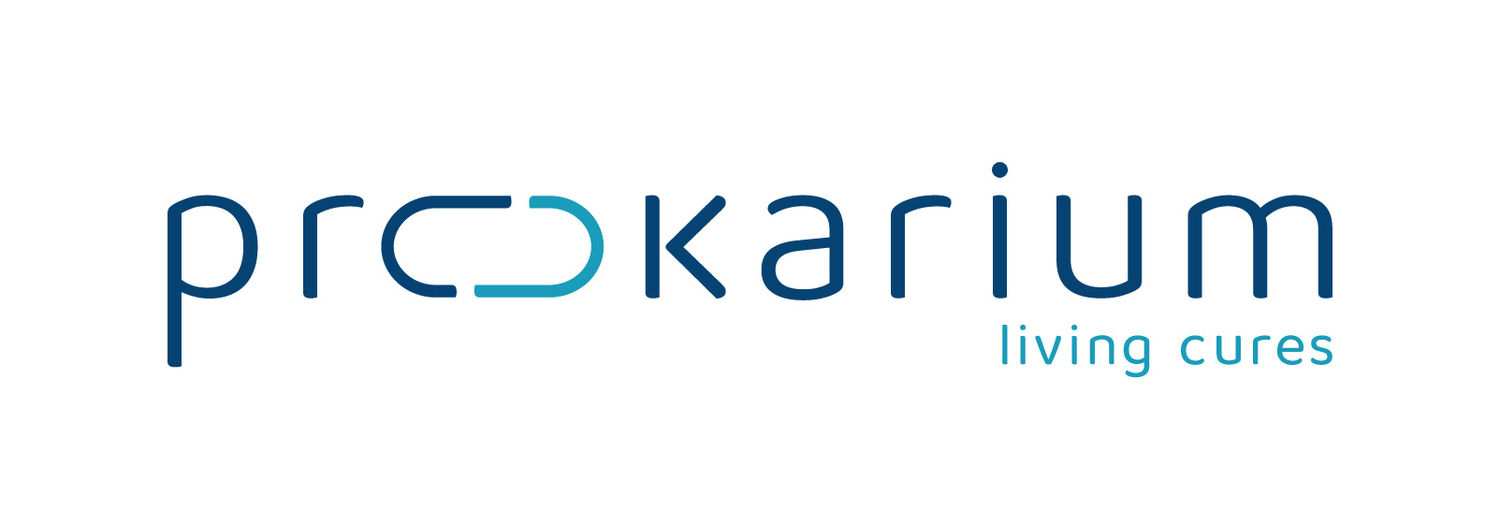预约演示
更新于:2025-08-29

Prokarium Ltd.
更新于:2025-08-29
概览
标签
肿瘤
泌尿生殖系统疾病
减毒活疫苗
治疗性疫苗
疾病领域得分
一眼洞穿机构专注的疾病领域
暂无数据
技术平台
公司药物应用最多的技术
暂无数据
靶点
公司最常开发的靶点
暂无数据
| 疾病领域 | 数量 |
|---|---|
| 肿瘤 | 1 |
| 排名前五的药物类型 | 数量 |
|---|---|
| 减毒活疫苗 | 1 |
| 治疗性疫苗 | 1 |
| 排名前五的靶点 | 数量 |
|---|---|
| PDL1(程序性死亡配体1) | 1 |
关联
1
项与 Prokarium Ltd. 相关的药物靶点 |
作用机制 PDL1抑制剂 |
原研机构 |
在研适应症 |
非在研适应症- |
最高研发阶段临床1期 |
首次获批国家/地区- |
首次获批日期- |
2
项与 Prokarium Ltd. 相关的临床试验NCT06181266
A Phase 1/1b Study Evaluating the Safety, Pharmacology, and Clinical Effect of ZH9 Treatment in Patients With Non-Muscle Invasive Bladder Cancer
This is a first-in-human, multicenter, Phase 1/1b, 3-part, double-blind study of ZH9 in patients with recurrent NMIBC who are eligible for intravesical therapy. In Part 1, the safety, tolerability, and pharmacology of ZH9 IVI will be evaluated in a single ascending dose (SAD) patient cohort. In Part 2, the safety, tolerability, and pharmacology of ZH9 oral prime followed by ZH9 IVI will be evaluated in 2 patient cohorts at the doses and schedule established in Part 1. In Part 3, the safety, pharmacology, and clinical efficacy of ZH9 will be further evaluated in 2 expansion cohorts of patients with recurrent intermediate- and high-risk NMIBC.
开始日期2024-01-08 |
申办/合作机构 |
NCT04349553
A Phase I, Randomised, Double-blind, Placebo-controlled, Parallel Group Dose Escalation Study to Evaluate the Safety, Tolerability and Immunogenicity of a Potential Oral Enteric Fever Vaccine (ZH9 + ZH9PA) in Healthy Participants
A Phase 1, randomised, double-blind, placebo-controlled, parallel group study in 45 healthy participants aged 18 to 45 years inclusive.
开始日期2019-12-16 |
申办/合作机构  Prokarium Ltd. Prokarium Ltd. [+1] |
100 项与 Prokarium Ltd. 相关的临床结果
登录后查看更多信息
0 项与 Prokarium Ltd. 相关的专利(医药)
登录后查看更多信息
3
项与 Prokarium Ltd. 相关的文献(医药)2014-09-01·FEMS microbiology letters4区 · 生物学
RecombinantBacillus subtilisspores expressing MPT64 evaluated as a vaccine against tuberculosis in the murine model
4区 · 生物学
Letter
作者: Cutting, Simon M. ; Cranenburgh, Rocky M. ; Huang, Jen-Min ; Sibley, Laura ; Reljic, Rajko ; Hong, Huynh A. ; Radford, David S.
Recombinant Bacillus subtilis spores expressing a TB antigen, MPT64, were tested for their ability to protect mice against tuberculosis challenge. A chimeric gene consisting of the spore coat gene cotB fused to mpt64 was constructed, and expression of a stable CotB-MPT64 hybrid protein of the spore coat verified. Spores were evaluated as a live vaccine and also formaldehyde inactivated. Mice were given three doses of spores or alternatively used in a prime-boost regimen with BCG. The results showed that inactivated recombinant spores were able to reduce the bacterial burden in the lungs of mice to comparable levels to that of BCG. In the prime-boost regimen, both live and inactivated spores showed a reduction in bacterial load in comparison with BCG. ELISPOT and polyfunctional T-cell analysis were performed to examine cellular responses and showed that antigen-specific secretion of Th1 cytokines was stimulated after immunisation with inactive recombinant spores and BCG. In summary, recombinant spores can elicit Th1 responses, which are important for protection against TB disease.
2013-07-01·Microbiology (Reading, England)4区 · 生物学
Synthetic biology: biology by design
4区 · 生物学
Article
作者: Oyston, P. C. F. ; Stevens, M. P. ; Roberts, M. A. J. ; Cranenburgh, R. M.
A review.Synthetic biol. can be defined as the design and construction of novel biol. based parts, devices and systems, as well as the redesign of existing natural biol. systems, for useful purposes.
BMC Urology
Immunomonitoring in bladder cancer: a short report on stability of leukocytes and proteins in refrigerated urine samples
Article
作者: Domingos-Pereira, Sonia ; Prevosto, Claudia ; Ragavan, Suvetha ; Sevko, Alexandra ; Deban, Livija ; Carrera, Marc Biarnes ; Cesson, Valérie ; Derré, Laurent
BACKGROUND:
Urine biomarkers are crucial for monitoring patient responses in treating urological pathologies, including non-muscle invasive bladder cancer (NMIBC). Yet, analysing urine biomarkers poses several challenges, including ensuring specimen stability during transportation and analytical processing. This prospective feasibility study aimed to investigate how urinary leukocytes and proteins are impacted by storing and refrigerating urine.
METHODS:
Stability of leukocytes from four healthy donors (HD) spiked into urine supernatants was analyzed for up to 72 h at 4°C. Urine samples from five NMIBC patients undergoing BCG treatment were divided into two portions, followed by either immediate processing or overnight refrigeration. Urinary cell content and soluble factors were analyzed by multiparameter flow cytometry and Luminex®, respectively.
RESULTS:
We confirmed the stability of healthy donor peripheral blood leukocytes spiked into cell-free urine supernatants from healthy donors or untreated bladder cancer patients for up to 72 h under refrigeration at + 5℃. Additionally, we conducted immune cell and proteomic analysis from urine samples obtained from five NMIBC patients receiving Bacillus Calmette-Guérin (BCG) therapy either processed immediately or after overnight refrigeration. We successfully demonstrated that leukocyte and protein composition remain stable in refrigerated urine from BCG-treated NMIBC for 24 h. This included granulocytes, monocytes, and T cells, as well as total protein, creatinine and 46 additional individual immune-related mediators.
CONCLUSIONS:
This work demonstrates the compatibility of refrigerated urine shipment from the collection sites to analytical laboratories with both immunophenotyping and proteomic analysis and establishes clear logistical benefits for numerous clinical settings focused on monitoring patient immune responses in the urine matrix.
24
项与 Prokarium Ltd. 相关的新闻(医药)2024-11-04
Prokarium’s ZH9 is currently being developed as an intravesical treatment for preventing recurrences in non-muscle invasive bladder cancer. Credit: Aria sandi hasim/Shutterstock.
UK-based biopharmaceutical company Prokarium has received two Notices of Allowance from the US Patent and Trademark Office (USPTO).
The patents will aid in “strengthening its [the company’s] position in the bladder cancer field”.
Application no 17/752,707 pertains to the co-administration of Prokarium’s salmonella strains with immune checkpoint inhibitors, aimed at augmenting the therapeutic efficiency of these inhibitors.
Meanwhile, application no 18/559,543 encompasses a salmonella-based method for treating neoplastic diseases, which works by inducing an immune response coupled with targeted anti-tumour action.
Prokarium CEO Kristen Albright stated: “This patent bolsters our IP portfolio and, more importantly, creates a stronger foundation for our clinical programme in bladder cancer.
“Together, these innovations represent a major value driver for the company, strengthening our position to attract strategic partners and investors as we address large, underserved markets in cancer immunotherapy.”
Prokarium’s investigational immunotherapy ZH9 is currently being developed as an intravesical treatment for preventing recurrences in non-muscle invasive bladder cancer.
The asset is being analysed in the PARADIGM-1 study, which is actively enrolling patients across multiple centres in the US.
In November 2023, the US Food and Drug Administration (FDA) granted clearance for the company’s investigational new drug (IND) application for the trial of ZH9.
In March 2024, Prokarium was awarded a UK Research and Innovation (UKRI) engineering biology grant, funded through the UKRI’s Technology Missions Fund and delivered by Innovate UK.
This grant is intended to expedite the development of the company’s Living Cures platform, which aims to transform precision medicine through off-the-shelf programmable therapeutics.
Leveraging the UKRI engineering biology grant, Prokarium also plans to commence the next phase of development to strengthen its position in the synthetic biology field.

免疫疗法临床研究临床申请
2024-11-01
LONDON--(
BUSINESS WIRE
)--Prokarium, a biopharmaceutical company developing innovative cancer treatments, today announced the receipt of two Notices of Allowance from the United States Patent and Trademark Office (USPTO). These patents, covering applications Nos. 17/752,707 and 18/559,543, strengthen Prokarium’s mission to develop innovative, scalable therapies that address critical gaps in cancer treatment.
Application No. 17/752,707 protects the co-administration of Prokarium’s proprietary Salmonella strains with immune checkpoint inhibitors to enhance the checkpoint inhibitors therapeutic efficacy. “This patent, alongside our granted patent in combination with cell therapies, is a significant step toward scaling our technology’s potential in the oncology space," said Dr. Livija Deban, CSO at Prokarium. "By advancing our technology to amplify the effects of immune checkpoint inhibitors, we’re demonstrating a value proposition that investors and partners can rely on as we work towards scalable, impactful cancer treatments."
Application No. 18/559,543 protects an advanced Salmonella-based method for treating neoplastic diseases by promoting a robust immune response along with targeted anti-tumor action. “This patent bolsters our IP portfolio and, more importantly, creates a stronger foundation for our clinical program in bladder cancer,” said Kristen Albright, PharmD, Chief Executive Officer at Prokarium. “Together, these innovations represent a major value driver for the company, strengthening our position to attract strategic partners and investors as we address large, underserved markets in cancer immunotherapy.”
About Prokarium
Prokarium is a biopharmaceutical company transforming the treatment landscape to prevent bladder cancer recurrence. The Company's lead program, currently in U.S. clinical trials as the PARADIGM-1 trial, is designed to achieve relapse-free outcomes, reduce treatment burden, and meet global demand through scalable manufacturing. Prokarium’s Living Cures platform transforms precision medicine into off-the-shelf, programmable therapeutics, offering a new class of immunotherapies that are accessible, customizable, and highly effective. Prokarium is based in London, UK. For further information, visit
www.prokarium.com
.
About ZH9
The investigational immunotherapy ZH9 is being developed as an intravesical treatment for the prevention of recurrences in non-muscle invasive bladder cancer. The PARADIGM-1 study (NCT06181266) is enrolling patients across multiple centers in the United States.
免疫疗法临床研究
2024-02-07
LONDON--(BUSINESS WIRE)-- Prokarium, a clinical-stage biopharmaceutical company bioengineering Living Cures through cutting-edge synthetic biology, today announces the dosing of the first patient in their PARADIGM-1 Phase I/Ib clinical trial in non-muscle invasive bladder cancer (NMIBC) patients (NCT06181266).
The study is being conducted at multiple clinical sites across the United States and will initially evaluate the safety of a single intravesical administration of their investigational immunotherapy, ZH9, in NMIBC patients. The study will further investigate and characterize clinical efficacy of the ZH9 treatment regimen in pre-planned expansion cohorts under the same IND.
“Dosing our first patient in the clinical trial is an exciting milestone,” said Dr. Josefin-Beate (Josi) Holz, CMO of Prokarium. “It translates our scientific promises into practical advancements, as we strive to transform the treatment paradigm for patients with NMIBC.”
Dr. Daniel Zainfeld, Urology San Antonio, commented, “We are excited to have dosed our first patient in Prokarium’s PARADIGM-1 study. The trial provides us the opportunity to explore an innovative treatment approach for our NMIBC patients who are facing significant gaps in available effective treatment options.”
Kristen Albright, CEO of Prokarium, remarked, "We are grateful to the patients and urologists involved in the PARADIGM-1 clinical trial. This achievement represents a pivotal moment for Prokarium as we introduce Living Cures, a novel class of immunotherapies built with synthetic biology.”
About Prokarium
Prokarium is a clinical-stage biopharmaceutical company bioengineering Living Cures through cutting-edge synthetic biology. Prokarium’s lead program, currently advancing in US clinical trials for bladder cancer, is a single-dose therapy redesigning the treatment paradigm for patients. The Company’s Living Cures platform aims to transform precision medicine into off-the-shelf programmable therapeutics, promising a new class of immunotherapies with a goal of equitable access. Prokarium is based in London, UK. For further information, visit .
About ZH9
ZH9, a proprietary bacterial immunotherapy under investigation in the PARADIGM-1 clinical trial (NCT06181266) in the United States, seeks to redesign the treatment paradigm for non-muscle invasive bladder cancer patients through a single-dose intravesical induction regimen.
免疫疗法临床研究
100 项与 Prokarium Ltd. 相关的药物交易
登录后查看更多信息
100 项与 Prokarium Ltd. 相关的转化医学
登录后查看更多信息
组织架构
使用我们的机构树数据加速您的研究。
登录
或

管线布局
2025年11月11日管线快照
管线布局中药物为当前组织机构及其子机构作为药物机构进行统计,早期临床1期并入临床1期,临床1/2期并入临床2期,临床2/3期并入临床3期
临床1期
1
3
其他
登录后查看更多信息
当前项目
| 药物(靶点) | 适应症 | 全球最高研发状态 |
|---|---|---|
ZH-9 ( PDL1 ) | 肌层浸润性膀胱癌 更多 | 临床前 |
伤寒疫苗(Emergent BioSolutions, Inc.) | 伤寒 更多 | 终止 |
ZH9PA | 伤寒 更多 | 无进展 |
Bivalent typhoid vaccine (Prokarium) | 伤寒 更多 | 无进展 |
登录后查看更多信息
药物交易
使用我们的药物交易数据加速您的研究。
登录
或

转化医学
使用我们的转化医学数据加速您的研究。
登录
或

营收
使用 Synapse 探索超过 36 万个组织的财务状况。
登录
或

科研基金(NIH)
访问超过 200 万项资助和基金信息,以提升您的研究之旅。
登录
或

投资
深入了解从初创企业到成熟企业的最新公司投资动态。
登录
或

融资
发掘融资趋势以验证和推进您的投资机会。
登录
或

生物医药百科问答
全新生物医药AI Agent 覆盖科研全链路,让突破性发现快人一步
立即开始免费试用!
智慧芽新药情报库是智慧芽专为生命科学人士构建的基于AI的创新药情报平台,助您全方位提升您的研发与决策效率。
立即开始数据试用!
智慧芽新药库数据也通过智慧芽数据服务平台,以API或者数据包形式对外开放,助您更加充分利用智慧芽新药情报信息。
生物序列数据库
生物药研发创新
免费使用
化学结构数据库
小分子化药研发创新
免费使用
